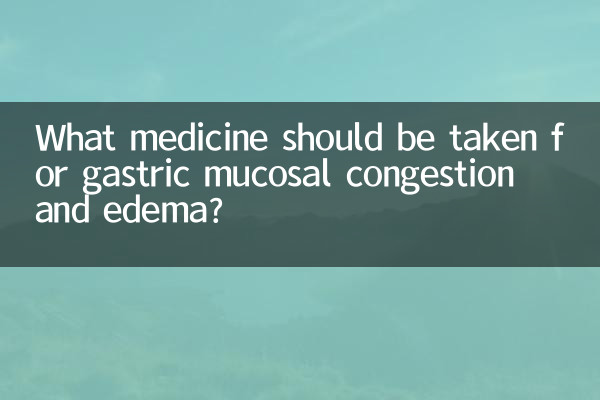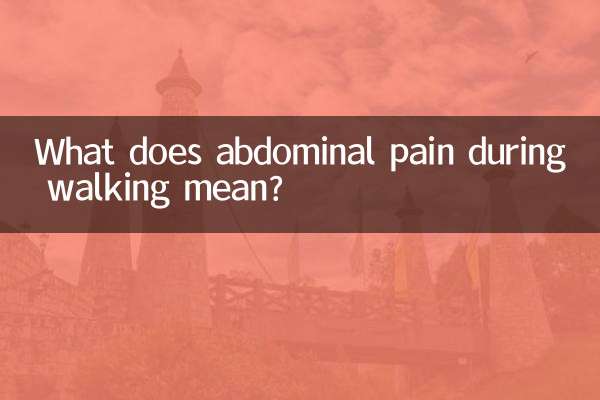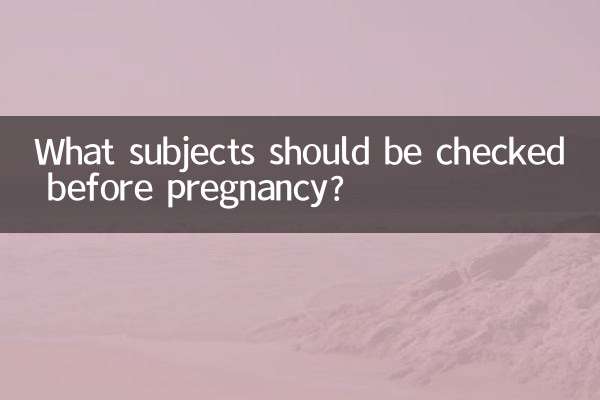What medicine should be taken for gastric mucosal congestion and edema?
Gastric mucosal congestion and edema is a common gastric disease, usually caused by gastritis, gastric ulcer, improper diet or drug stimulation. To address this problem, choosing the right drug is crucial. The following are the drug treatment recommendations for gastric mucosal congestion and edema that have been hot topics on the Internet in the past 10 days, compiled based on feedback from medical experts and patients.
1. Common causes and symptoms

The main symptoms of gastric mucosal congestion and edema include upper abdominal pain, nausea, vomiting, loss of appetite, etc. Common causes are as follows:
| Cause | Description |
|---|---|
| Gastritis | Gastric mucosal inflammation leads to congestion and edema |
| gastric ulcer | Gastric acid erodes gastric mucosa and causes edema |
| Improper diet | Spicy, irritating food or alcohol irritation |
| Drug stimulation | Side effects of medications such as nonsteroidal anti-inflammatory drugs (NSAIDs) |
2. Recommend drug treatment plan
Depending on the cause and severity of symptoms, doctors usually recommend the following medications:
| drug type | Representative medicine | Mechanism of action | Things to note |
|---|---|---|---|
| Proton pump inhibitors (PPIs) | Omeprazole, lansoprazole | Inhibit gastric acid secretion and reduce mucosal irritation | Long-term use requires monitoring for side effects |
| H2 receptor antagonist | ranitidine, famotidine | Reduce gastric acid secretion and relieve symptoms | Suitable for mild to moderate symptoms |
| Gastric mucosa protectant | Sucralfate, colloidal bismuth pectin | Form a protective film and promote mucosal repair | Need to be taken on an empty stomach |
| Antacids | Aluminum hydroxide, magnesium carbonate | Neutralizes stomach acid and quickly relieves pain | For short-term use, avoid overdose |
| Antibiotics (such as Helicobacter pylori infection) | amoxicillin, clarithromycin | Eradicate Helicobacter pylori and reduce inflammation | Combined medication is required and follow the doctor’s advice |
3. Diet and life conditioning suggestions
In addition to drug treatment, adjustments to diet and lifestyle habits are also very important:
| Suggestions | Specific measures |
|---|---|
| light diet | Avoid spicy, greasy, cold or hot foods |
| Eat small meals often | Reduce the burden on the stomach and avoid excessive secretion of gastric acid |
| Quit smoking and limit alcohol | Reduce irritation to gastric mucosa |
| Regular schedule | Avoid staying up late and reduce mental stress |
4. Precautions
1.Take medication as directed by your doctor: The causes of gastric mucosal congestion and edema are complex, and an appropriate drug combination needs to be selected according to the doctor’s diagnosis. In particular, patients with Helicobacter pylori infection need standardized treatment.
2.Avoid drug abuse: Long-term use of acid-suppressing drugs may cause nutrient absorption disorders or intestinal flora imbalance, and requires regular review.
3.Seek medical attention promptly: If symptoms continue to worsen (such as vomiting blood, melena, etc.), it may indicate gastric bleeding or ulcer perforation, and you need to seek medical attention immediately.
5. Summary
The treatment of gastric mucosal congestion and edema requires a combination of drugs and lifestyle adjustments. Acid-suppressing drugs and gastric mucosal protective agents are the core treatment drugs, and Helicobacter pylori infection needs to be diagnosed at the same time. Patients should maintain a healthy diet, avoid triggers, and take medication regularly under the guidance of a doctor.

check the details

check the details